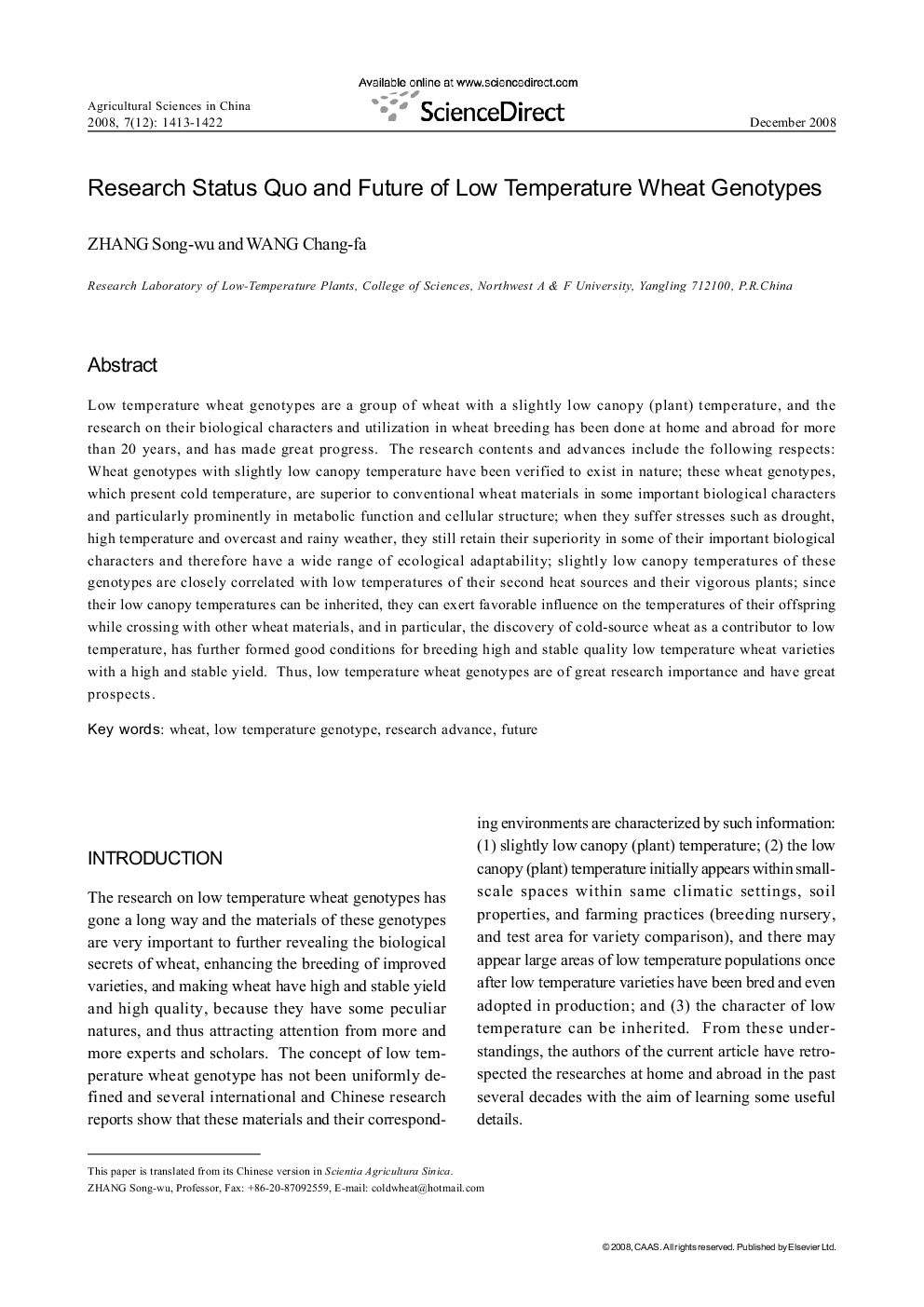| کد مقاله | کد نشریه | سال انتشار | مقاله انگلیسی | نسخه تمام متن |
|---|---|---|---|---|
| 4490500 | 1623192 | 2008 | 10 صفحه PDF | دانلود رایگان |

Low temperature wheat genotypes are a group of wheat with a slightly low canopy (plant) temperature, and the research on their biological characters and utilization in wheat breeding has been done at home and abroad for more than 20 years, and has made great progress. The research contents and advances include the following respects: Wheat genotypes with slightly low canopy temperature have been verified to exist in nature; these wheat genotypes, which present cold temperature, are superior to conventional wheat materials in some important biological characters and particularly prominently in metabolic function and cellular structure; when they suffer stresses such as drought, high temperature and overcast and rainy weather, they still retain their superiority in some of their important biological characters and therefore have a wide range of ecological adaptability; slightly low canopy temperatures of these genotypes are closely correlated with low temperatures of their second heat sources and their vigorous plants; since their low canopy temperatures can be inherited, they can exert favorable influence on the temperatures of their offspring while crossing with other wheat materials, and in particular, the discovery of cold-source wheat as a contributor to low temperature, has further formed good conditions for breeding high and stable quality low temperature wheat varieties with a high and stable yield. Thus, low temperature wheat genotypes are of great research importance and have great prospects.
Journal: Agricultural Sciences in China - Volume 7, Issue 12, December 2008, Pages 1413-1422